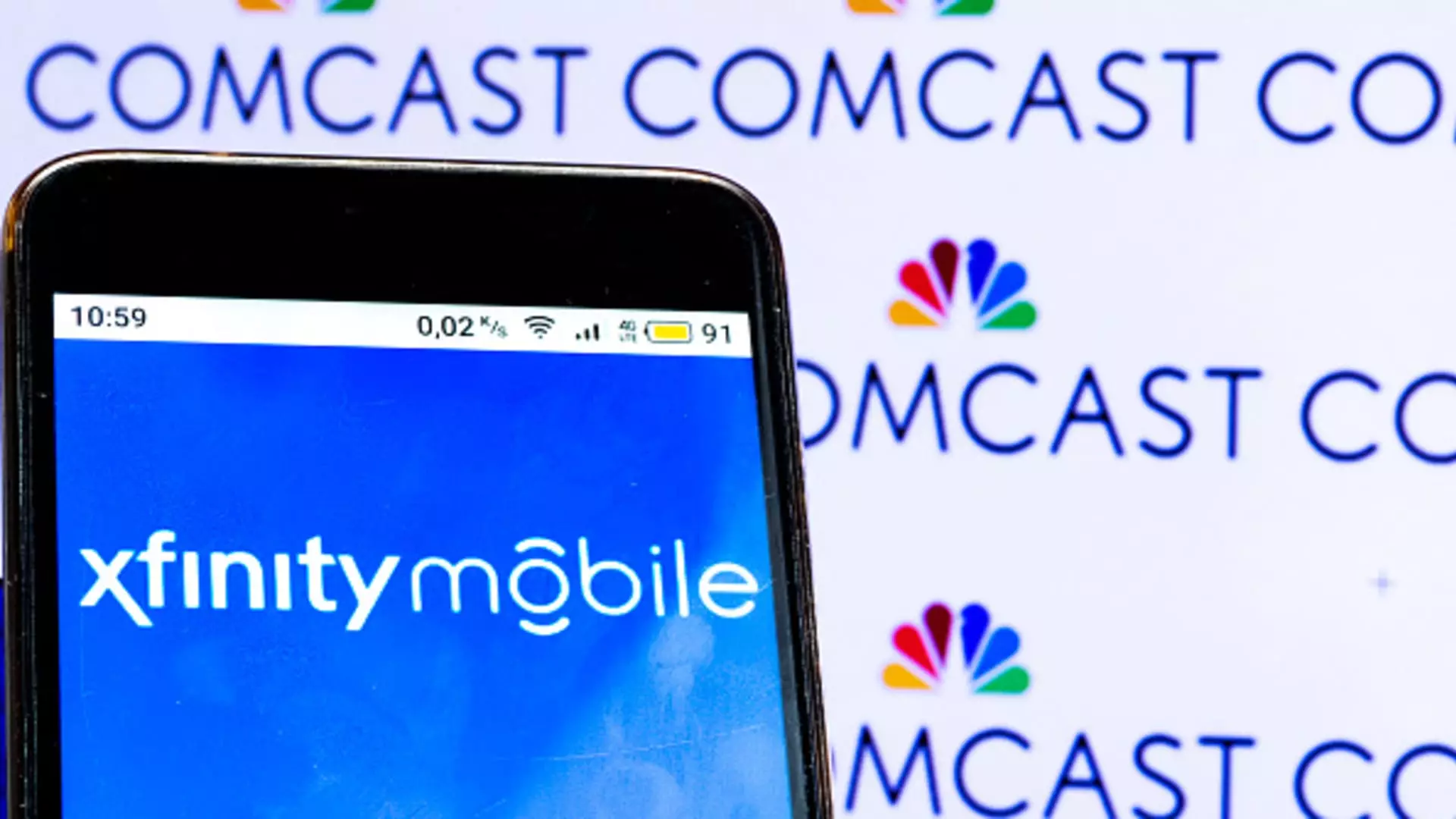In a surprising shift that has many sports fans buzzing, the iconic Wells Fargo Center in Philadelphia will be rebranded as the Xfinity Mobile Arena beginning this September. This change, set to last until the 2030-2031 season, underscores a larger trend in the sports and entertainment industry—companies leveraging sports venues to enhance their corporate identities. It’s a significant move, especially as Comcast Spectacor and Harris Blitzer Sports & Entertainment (HBSE) strive to gain control over the Philadelphia sports narrative. But what’s even more fascinating than the new name is the strategic reasoning behind it.
As Philadelphia embraces this transition, one cannot ignore the implications regarding corporate control and the intertwining of sports with technology. Comcast, once solely known for its cable services, is diversifying into mobile services, and this rebranding is a clear statement of intent. The company is looking to carve out a space in a highly competitive industry where it can no longer just rely on traditional cable revenues. Instead of viewing the arena as merely a venue for sports, Comcast aims to transform it into a hub for technological engagement with fans, promising an upgraded Wi-Fi experience in tandem with the new naming rights.
Comcast’s Bold New Branding Strategy
This move feels like a desperate but calculated pivot aimed at revitalizing Comcast’s mobile credentials. The mobile sector has witnessed an exponential rise for the company, with reports indicating an impressive addition of 323,000 mobile lines in just one quarter. The decision to tie its name to a prominent sports venue is not just a mere marketing gimmick; it’s a profound effort to associate the Xfinity brand with the passionate energy of Philly’s sports culture. By marrying sport with mobile technology, Comcast is looking to anchor itself within the fabric of Philadelphia while cultivating brand loyalty among residents, who are known for their fierce devotion to local teams.
Sure, the Philadelphia 76ers and Flyers may welcome the financial backing that comes with such a deal, but we cannot ignore the larger narrative. This rebranding exemplifies a cultural merging where technology giants increasingly become the mainstay of American sports. As the distinction between entertainment and digital connectivity continues to blur, Comcast’s strategy to invest in its mobile domain could serve as a cautionary tale for traditional cable companies grappling with stagnant growth. It’s a classic case of evolving or fading away.
The Happy Marriage of Technology and Sports
There’s also a convenience factor for current customers. With existing Xfinity Mobile patrons seamlessly connected to the arena’s Wi-Fi service at no additional cost, Comcast smartly eliminates the barriers between casual fans and their brand. This strategy serves to demystify mobile technology, making it accessible, engaging, and intertwined in the overall spectator experience.
Notably, this embrace of technological integration reflects a broader trend where sports arenas are becoming microcosms of modern urban life—interactive environments blending performance with interactivity. Philadelphia’s sports fans are about to experience an upgraded environment, combining state-of-the-art offerings with their love for the Flyers and 76ers. However, can this harmony hold, especially as the boundaries of what we consider “fan engagement” continue to expand?
The Risks of Corporate Overreach
Yet, we must not overlook the risks this presents. As Comcast entangles itself deeper into the local sports identity, concerns arise about corporate overreach. Fans may question how much influence the corporation should have on the identity of a venue that has been part of their lives for decades. Will corporate logos overshadow the sports history embedded in these walls? By tying its success to emotional loyalty from the fans, a line is being drawn that could threaten the purity of the sporting experience in Philadelphia.
Moreover, as competition heats up with rivals like AT&T and Verizon, Comcast’s push for dominance in the mobile sector could turn aggressive, leading to the potential erosion of customer trust. While this strategy seeks greater market share, there’s a thin line between brand loyalty based on connection and loyalty built through over-assertive marketing tactics.
In an era defined by rapid technological advancement and corporate sponsorships, the emergence of the Xfinity Mobile Arena serves as a crucial pivot point in both the Philadelphia sports landscape and the broader implications of how technology brands can influence local culture. What’s certain is that we are on the precipice of witnessing an evolution in how we engage with sports, for better or for worse.


Leave a Reply